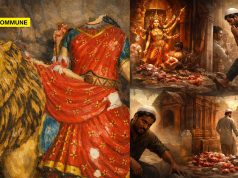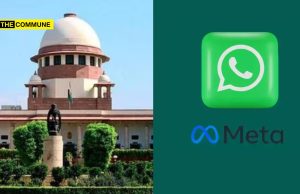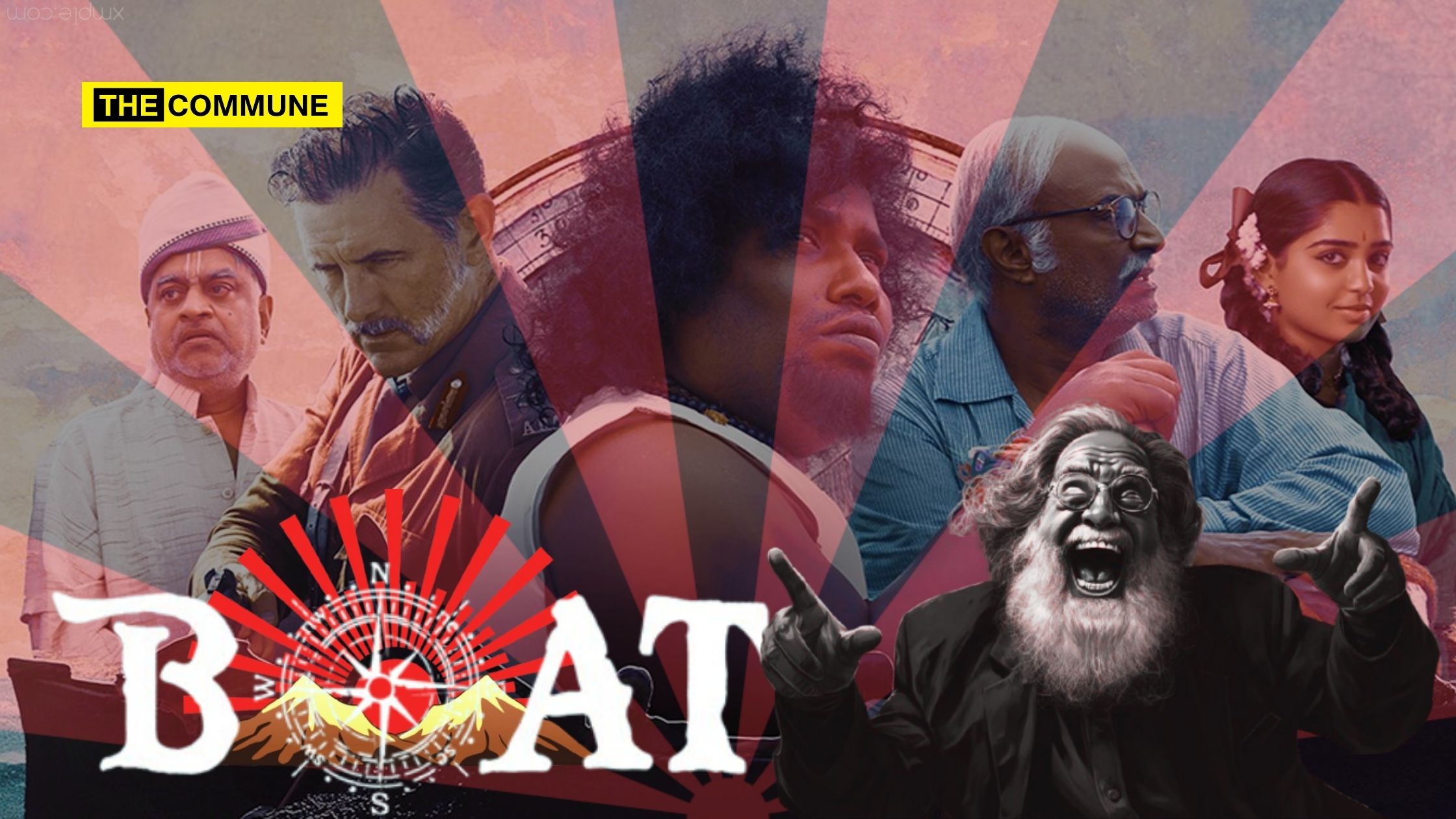
Boat – a 1940s Dravidian propaganda stage play, masquerading as a Tamil feature film. Here is a thread that reviews this film with a clear agenda.
On 11 October 1943, Japanese warplanes bombed the Madras presidency in a nighttime raid. Fearing another attack, 9 random people get on a boat to secure themselves in mid-ocean, with one uninvited British guest who joins them later, with a gun. ‘Did they all survive?’ is the plot.
The 9 characters stuck on a boat are carefully chosen to represent a Mini-India.
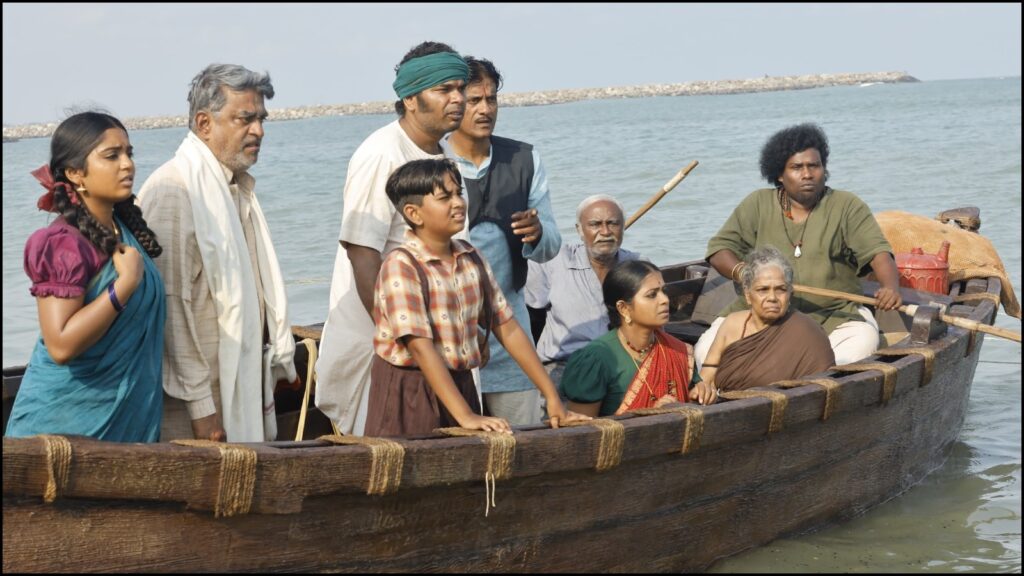
The fisherman & his grandma help onboard a pregnant Telugu woman and her sick son, a Sait, a regular Muslim, a regular Hindu, and the usual villains of Tamil cinema – a casteist Tamil Brahmin uncle and his daughter.
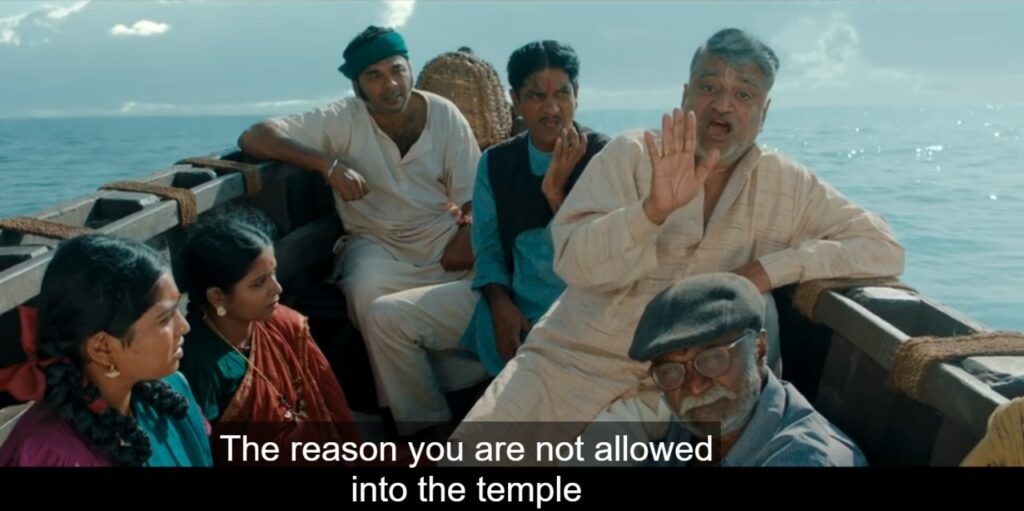
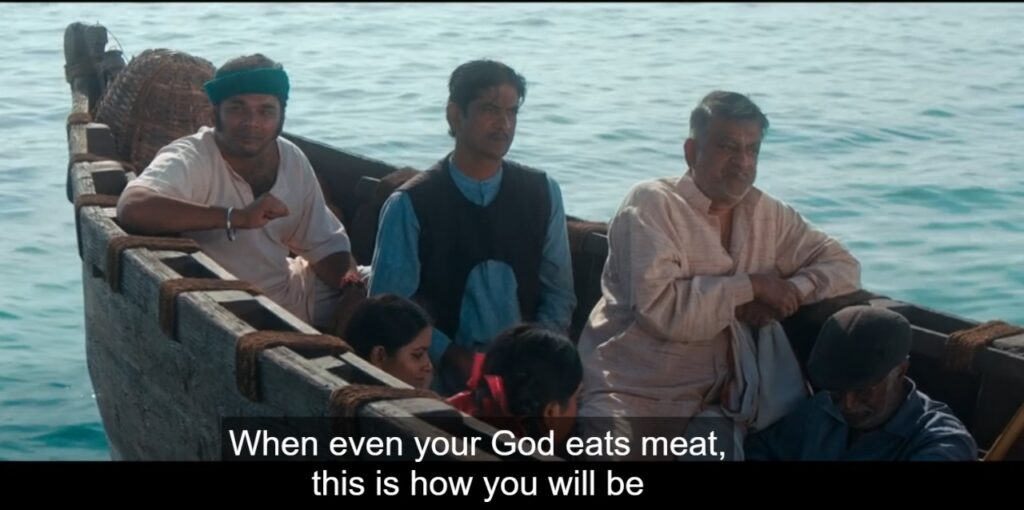
They have chosen an innocent, hardworking, good fisherman – who confronts a blatant casteist uncle who justifies the non-entry of the downtrodden into the temples.
This character is basically a punching bag – his bigotry is contrasted with goodness from other sensible characters. If evil casteist Tamil Brahmins are the bigoted villains, then according to Tamil cinema, who is the brave savior of Tamils? EVR, of course.
Curd rice-eating casteist uncle is the supervillain who is defeated by a superhero – atheist EVR who reformed us – this is textbook Dravidianist propaganda.
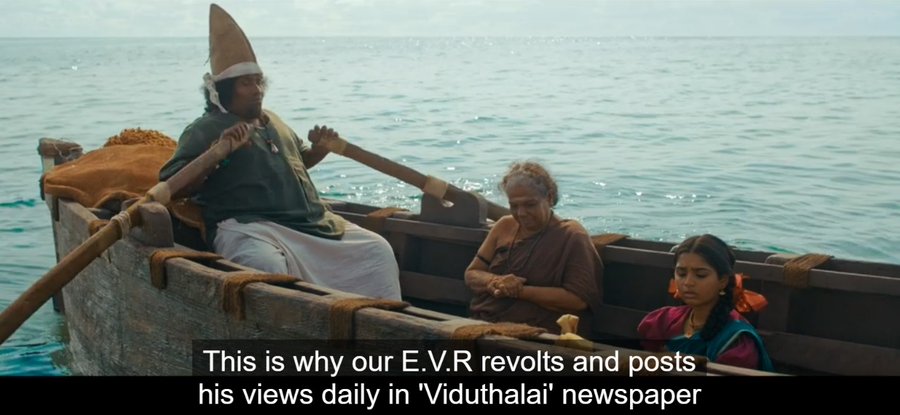
There’s a clear motive in the characterization – they wantonly depict this despicable Tamil Brahmin character as someone who praises a Britisher and takes his side.
This is Goebell-level reinforcement of the Dravidianist agenda – to villainize and gaslight a community in all ways possible.
In reality – Tamil Brahmins were at the forefront of the Indian independence movement, even as EVR called 15 August 1947 a black day.
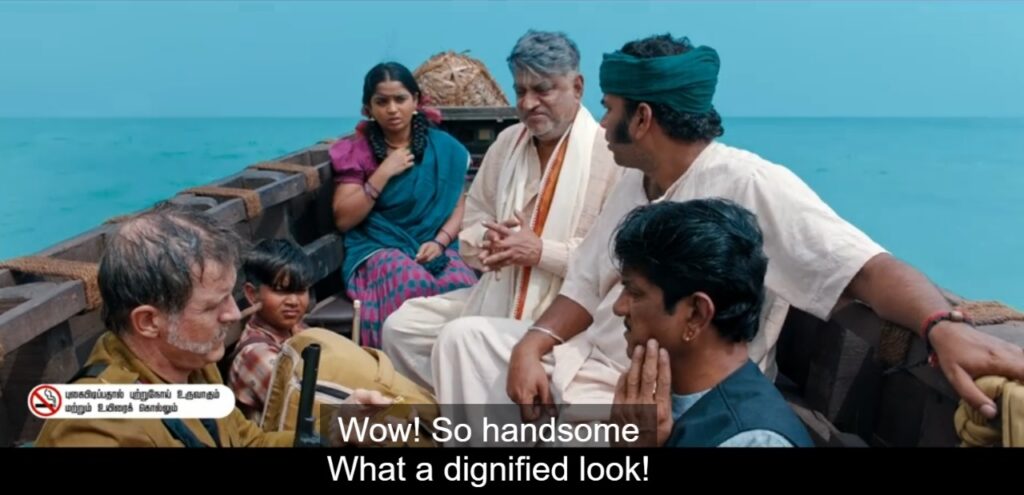
Karma theory – a belief by Hindus, Jains, and Buddhists alike – is derided as something that applies only to those who think they are superior.
In reality, Karma theory is a native belief in causality that is a rough explanation for human suffering. Abrahamic faiths offer no better explanation for why suffering and blessings are so unevenly distributed – if the One God was so fair.
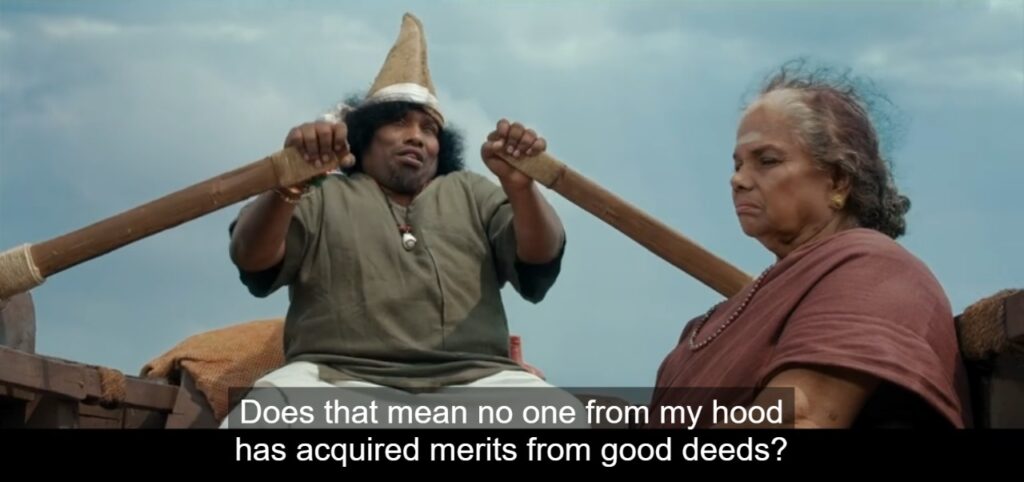
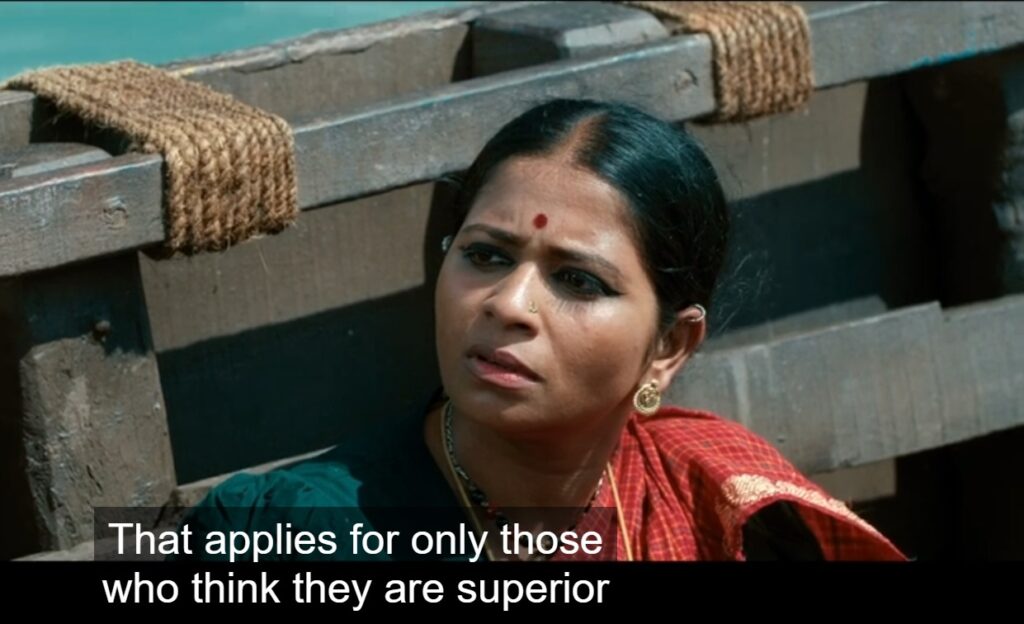
Seeing the film’s opening image and who is being thanked might help put the pieces together – why is the Indic native belief system in Karma derided in this film?
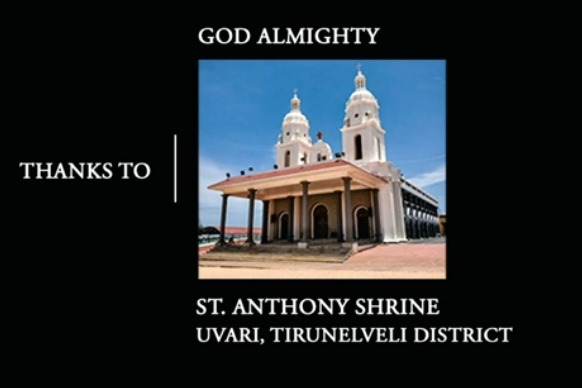
No other character/community is villainized the way the Tamil Brahmin character is. The Muslim is a peaceful person who offers namaz even in a boat and couldn’t even tolerate that he killed a rat by mistake, in anger.
“One who can control his anger is the great man,” says his Prophet. Oh, is it?
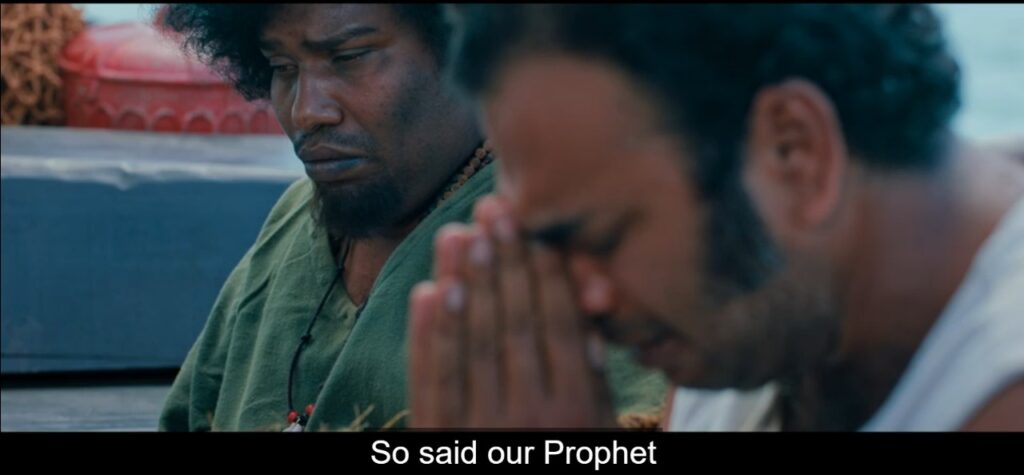
Tipu is listed as a freedom fighter alongside real freedom fighters like Poolithevan, Velu Nachiyaar, Azhagumuthukone, and Marudhu brothers.
A clip from Chimbudevan's 'Boat' film.
Identify the 'Group le Dupe' in the list of freedom fighters MS Bhaskar mentions.The cardinal rule of propaganda is that – when you are lying, ensure the lie is surrounded with truthful facts so that it doesn't stand out. pic.twitter.com/xdRecFixCR
— Tamil Labs 2.0 (@labstamil) September 21, 2024
Propaganda 101 – When you are lying, ensure the lie is surrounded with truthful facts so that it doesn’t stand out.
When the Britisher says your country will split into two, the Hindu character says that even if our country splits into 10, in every Muslim area, there will be a Hindu temple, and vice versa. How many temples remain in Pakistan and Bangladesh? How many Hindus live safely in these countries?
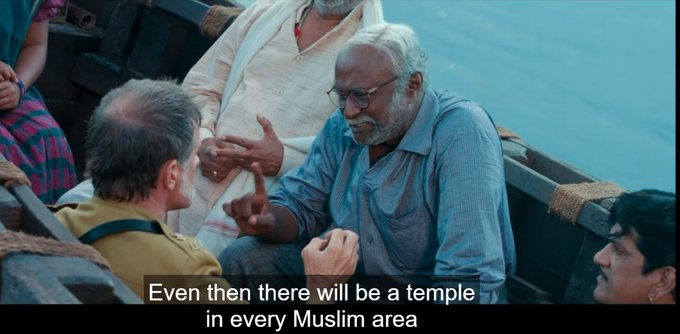
And he makes predictions about the future – spitting upon rogues who use religion for politics, from 1945. The film is against dividing people on a religious basis but goes soft on Jinnah. The irony. Why did Partition happen, and on what basis?
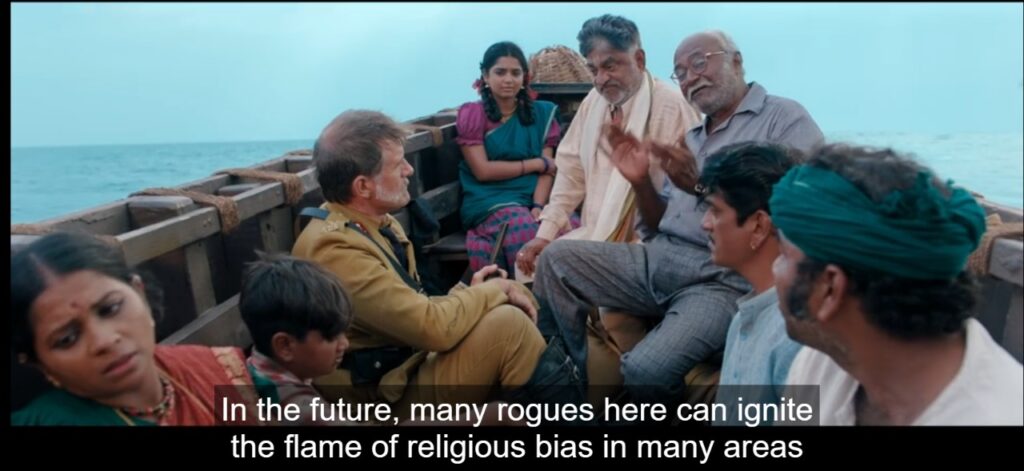
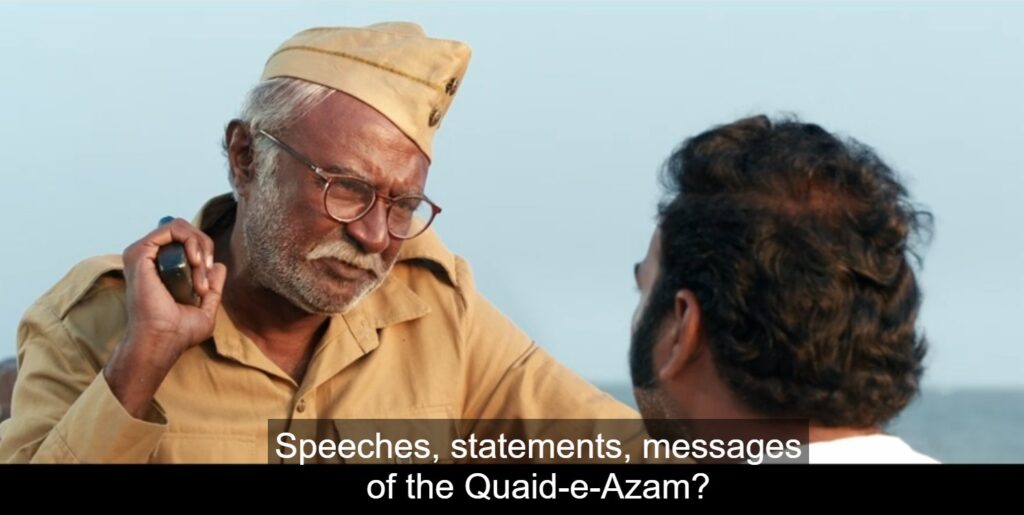
The film highlights using a radio news announcement that EVR stands in alignment with Ambedkar and Jinnah’s ideologies. This sums up the Dravidian vote bank, and who this film targeted this message for. It is not about activism or progress, but about consolidation.
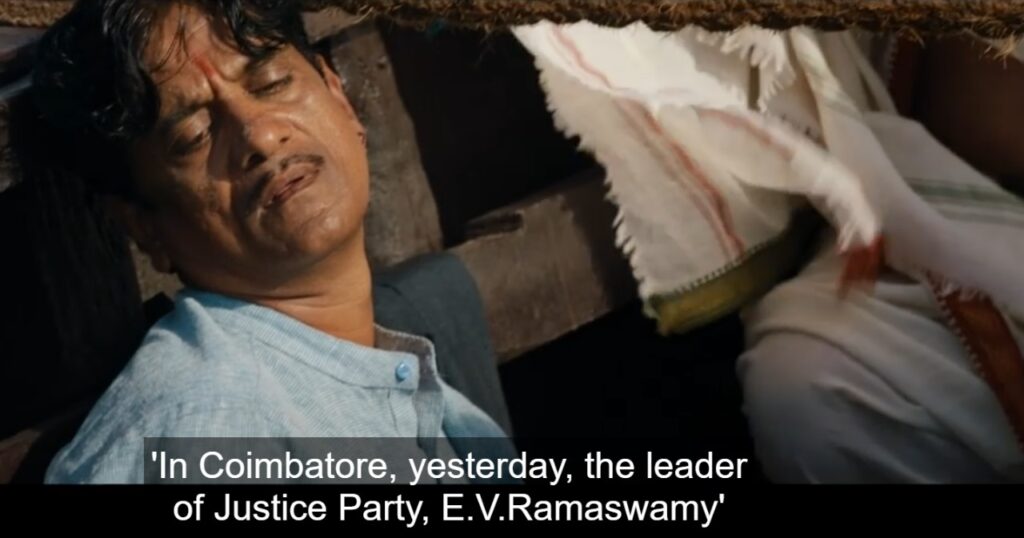
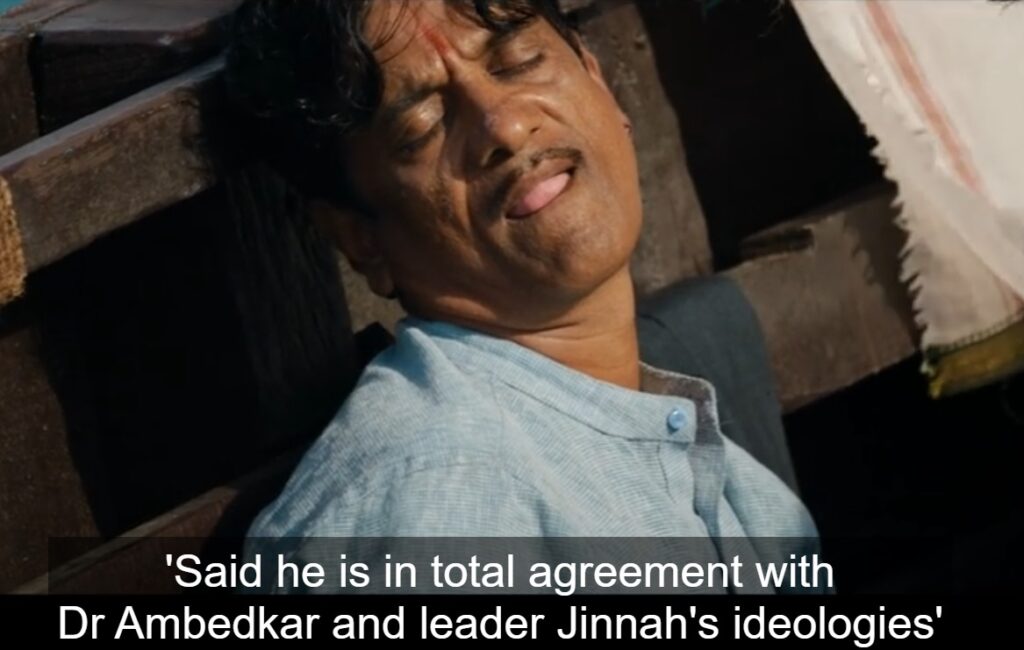
The film seeks to consolidate its Dravidianist in-group against the Aryan outgroups. It kept a fully muted/censored scene with this dialogue where the casteist uncle says at gunpoint: “That freedom fighting guy is not from my comm. Bharathi is Iyer, We are Iyengar, we are not the same.” Would any sensible Dravidianist associate themselves with such a despicable Aryan group? – is the subconscious messaging. But wait – not all Aryans are to be hated.
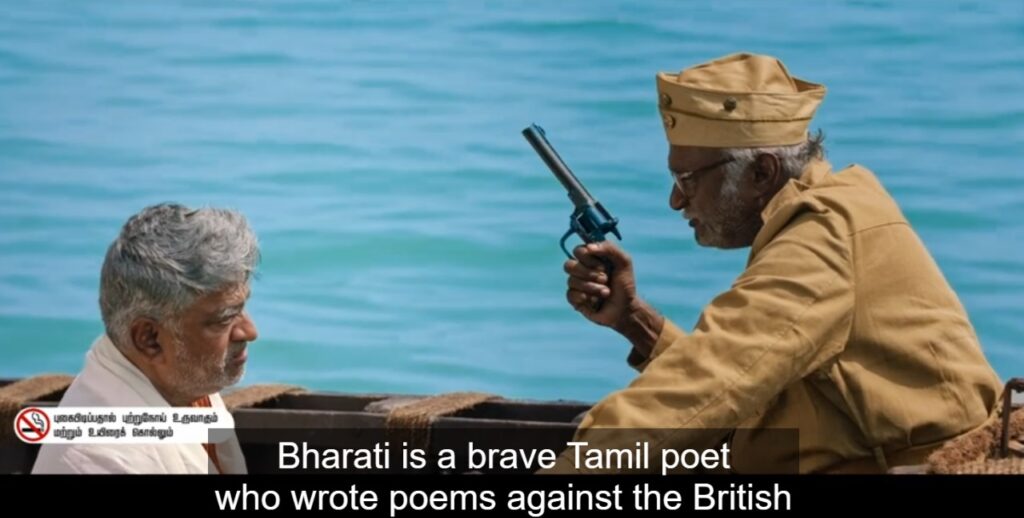
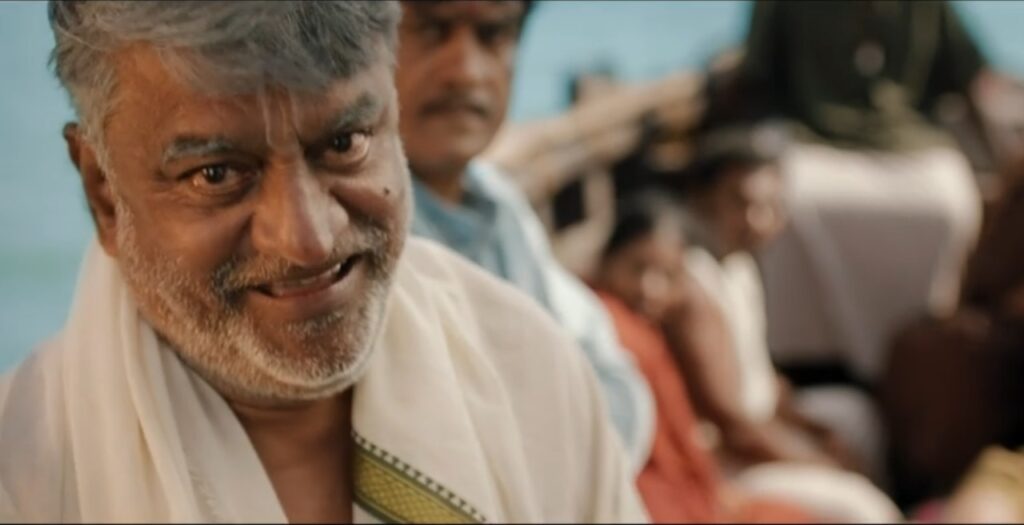
The fisherman and the casteist uncle’s daughter develop mild feelings for each other. This girl does not see inequality and falls head over heels with the fisherman’s strength and his way of life. She even sings a Carnatic song with North Madras phrases to prove this. Aryan males are the enemies of D, but not the females. Could not have summarized the ideology better.
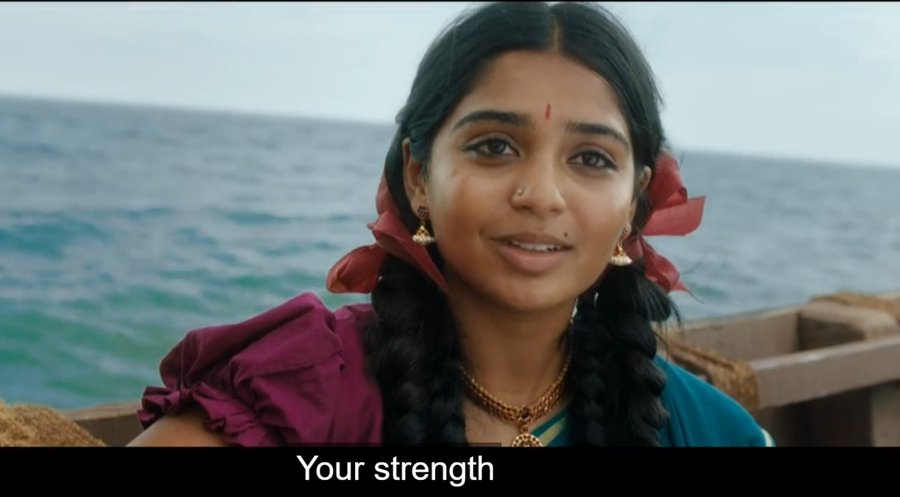
Bonus: A deleted Scene from the film shows how we will realize the worth of Britishers and what they did for us, only after they leave.
Bonus: Deleted Scene from the film shows how we will realize the worth of Britishers and what they did for us, only after they leave.
Truly, EVR Perans in thought, word and deed💯 pic.twitter.com/eonKCrA7x0
— Tamil Labs 2.0 (@labstamil) October 19, 2024
Truly, EVR’s “grandsons” in thought, word and deed💯
Image Credits: Amazon Prime No copyright infringement intended as images are used for fair use only – criticism or review.
Video Credits: Filmibuff
(This article based on the X thread by Tamil Labs 2.0)
Tamil Labs provide high quality Tamil Content written interestingly in English.
Subscribe to our Telegram, WhatsApp, and Instagram channels and get the best stories of the day delivered to you personally.



